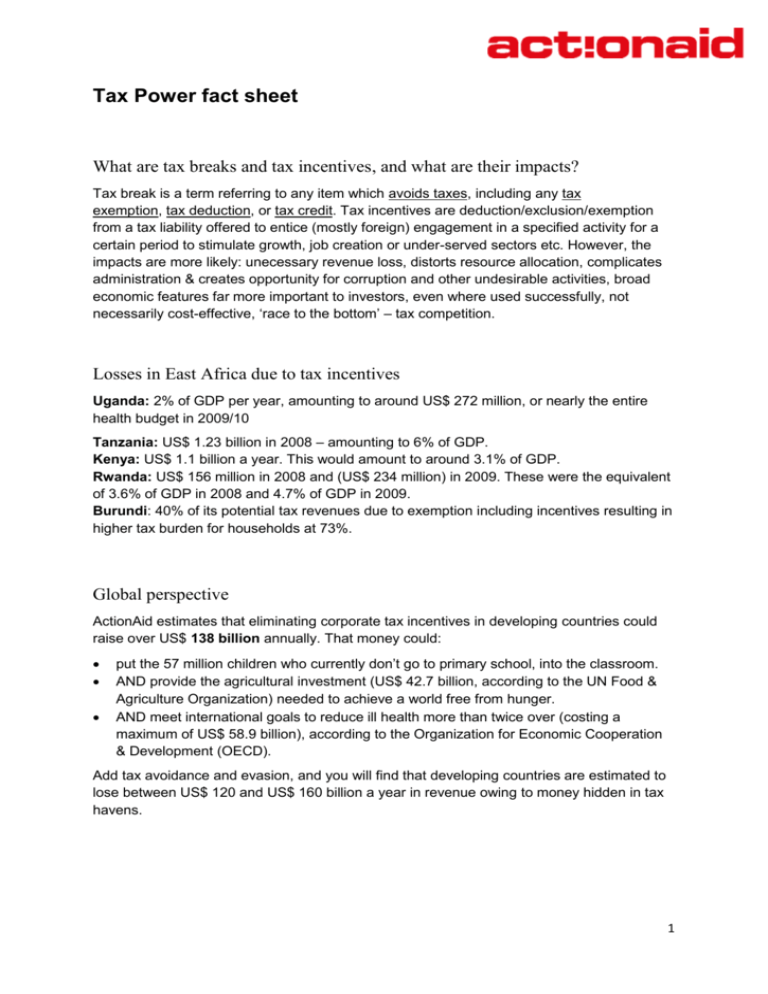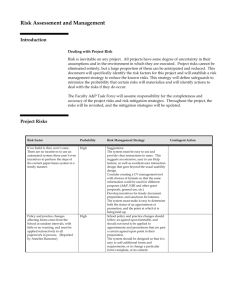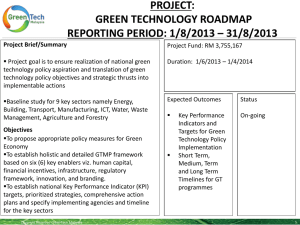tax_power_fact_sheet
advertisement

Tax Power fact sheet What are tax breaks and tax incentives, and what are their impacts? Tax break is a term referring to any item which avoids taxes, including any tax exemption, tax deduction, or tax credit. Tax incentives are deduction/exclusion/exemption from a tax liability offered to entice (mostly foreign) engagement in a specified activity for a certain period to stimulate growth, job creation or under-served sectors etc. However, the impacts are more likely: unecessary revenue loss, distorts resource allocation, complicates administration & creates opportunity for corruption and other undesirable activities, broad economic features far more important to investors, even where used successfully, not necessarily cost-effective, ‘race to the bottom’ – tax competition. Losses in East Africa due to tax incentives Uganda: 2% of GDP per year, amounting to around US$ 272 million, or nearly the entire health budget in 2009/10 Tanzania: US$ 1.23 billion in 2008 – amounting to 6% of GDP. Kenya: US$ 1.1 billion a year. This would amount to around 3.1% of GDP. Rwanda: US$ 156 million in 2008 and (US$ 234 million) in 2009. These were the equivalent of 3.6% of GDP in 2008 and 4.7% of GDP in 2009. Burundi: 40% of its potential tax revenues due to exemption including incentives resulting in higher tax burden for households at 73%. Global perspective ActionAid estimates that eliminating corporate tax incentives in developing countries could raise over US$ 138 billion annually. That money could: put the 57 million children who currently don’t go to primary school, into the classroom. AND provide the agricultural investment (US$ 42.7 billion, according to the UN Food & Agriculture Organization) needed to achieve a world free from hunger. AND meet international goals to reduce ill health more than twice over (costing a maximum of US$ 58.9 billion), according to the Organization for Economic Cooperation & Development (OECD). Add tax avoidance and evasion, and you will find that developing countries are estimated to lose between US$ 120 and US$ 160 billion a year in revenue owing to money hidden in tax havens. 1 What is the problem in Uganda? Apart from harmful and unnecessary tax incentives, Uganda has very poor revenue generation with a tax to GDP ratio at about 13%, one of the lowest in sub-Saharan Africa, often reflecting injustice when for instance small traders are actually taxed higher than big business; or the poor woman pay a higher percentage of her income on kerosene than the Big Man on petrol for his guzzling 4x4. However, even if generation of taxes was fair and sufficient, the allocation to the sectors of agriculture, health and education, which directly affect the lives of the poor, is still low. And then there is the utilization with extremely inadequate public service delivery – again affecting especially the sectors of health, agriculture and education, and again affecting the dignity of poor Ugandans the most. Add the rampant and endemic corruption where thieves eat incomprehensible amounts of public money. What is the solution? Increased transparency, fairness and regulation of tax incentives and exemptions, as well as bilateral tax treaties. Reduced tax avoidance and dodging by both domestic and multinational corporations operating in Uganda. Increased budget allocation in agriculture, health and education sectors at national and local government level. Strengthened citizen agency to monitor and hold government accountable for effective utilisation of tax revenue. How can we achieve that? Increased amount of resources available to finance the country’s development plans and thereby decrease Uganda’s dependence on aid. Parliament participates in scrutinizing contracts made with domestic and multinational companies. This will ensure transparency in negotiation and implementation of contracts and compliance with set minimum standards and taxation commitments. Government puts in place a harmonised policy on tax exemptions and incentives and legislation to close revenue losing loop holes in the investment code and bilateral tax treaties. An active national citizen agency linked to and campaigning with other regional and international movements to lobby for development of fair and transparent rules by Global and East African Governments on corporate taxation leading to the reduction of revenue leakages through tax incentives, holidays and transfer pricing or capital flight. 2








